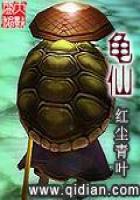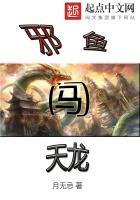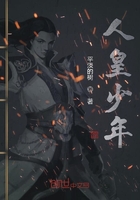THE CHIME OF THE BLUE BELLS
The Harvester finished his evening work and went to examine the cocoons. Many of the moths had emerged and flown, but the luna cases remained in the bottom of the box. As he stood looking at them one moved and he smiled.
"I'd give something if you would come out and be ready to work on by to-morrow afternoon," he said.
"Possibly you would so interest her that she would forget her fear of me. I'd like mighty well to take you along, because she might care for you, and I do need the pattern for my candlestick. Believe I'll lay you in a warmer place."
The first thing the next morning the Harvester looked and found the open cocoon and the wet moth clinging by its feet to a twig he had placed for it.
"Luck is with me!" he exulted. "I'll carry you to her and be mighty careful what I say, and maybe she will forget about the fear."
All the forenoon he cut and spread boneset, saffron, and hemlock on the trays to dry. At noon he put on a fresh outfit, ate a hasty lunch, and drove to Onabasha.
He carried the moth in a box, and as he started he picked up a rake. He went to an art store and bought the pencils and paper she had ordered. He wanted to purchase everything he saw for her, but he was fast learning a lesson of deep caution. If he took more than she ordered, she would worry over paying, and if he refused to accept money, she would put that everlasting "why" at him again. The water-colour paper and paint he could not forego. He could make a desire to have the moth coloured explain those, he thought.
Then he went to a furniture store and bought several articles, and forgetting his law against haste, he drove Betsy full speed to the river. He was rather heavily ladened as he went up the bank, and it was only one o'clock. There was an hour. He rolled away the log, raked together and removed the leaves to the ground.
He tramped the earth level and spread a large cheap porch rug. On this he opened and placed a little folding table and chair. On the table he spread the pencils, paper, colour box and brushes, and went to the river to fill the water cup. Then he sat on the log he had rolled to one side and waited. After two hours he arose and crept as close the house as he could through the woods, but he could not secure a glimpse of the Girl. He went back and waited an hour more, and then undid his work and removed it. When he came to the moth his face was very grim as he lifted the twig and helped the beautiful creature to climb on a limb. "You'll be ready to fly in a few hours," he said. "If I keep you in a box you will ruin your wings and be no suitable subject, and put you in a cyanide jar I will not. I am hurt too badly myself. I wonder if what Doc said was the right way! It's certainly a temptation."
Then he went home; and again Betsy veered at the hospital, and once more the Harvester explained to her that he did not want to see the doctor. That evening and the following forenoon were difficult, but the Harvester lived through them, and in the afternoon went back to the woods, spread his rug, and set up the table. Only one streak of luck brightened the gloom in his heart.
A yellow emperor had emerged in the night, and now occupied the place of yesterday's luna. She never need know it was not the one he wanted, and it would make an excuse for the colour box.
He was watching intently and saw her coming a long way off. He noticed that she looked neither right nor left, but came straight as if walking a bridge. As she reached the place she glanced hastily around and then at him. The Harvester forgave her everything as he saw the look of relief with which she stepped upon the carpet. Then she turned to him.
"I won't have to ask `why' this time," she said. "Iknow that you did it because I was baby enough to tell what a coward I am. I'm sure you can't afford it, and I know you shouldn't have done it, but oh, what a comfort! If you will promise never to do any such expensive, foolish, kind thing again, I'll say thank you this time. I couldn't come yesterday, because Aunt Molly was worse and Uncle Henry was at home all day."
"I supposed it was something like that," said the Harvester.
She advanced and handed him the roll of bills.
"I had a feeling you would be reckless," she said. "Isaw it in your face, so I came back as soon as I could steal away, and sure enough, there lay your money and the books and everything. I hid them in the thicket, so they will be all right. I've almost prayed it wouldn't rain. I didn't dare carry them to the house. Please take the money. I haven't time to argue about it or strength, but of course I can't possibly use it unless I earn it. I'm so anxious to see the pencils and paper."
The Harvester thrust the money into his pocket. The Girl went to the table, opened and spread the paper, and took out the pencils.
"Is my subject in here?" she touched the colour box.
"No, the other."
"Is it alive? May I open it?"
"We will be very careful at first," said the Harvester.
"It only left its case in the night and may fly. When the weather is so warm the wings develop rapidly. Perhaps if I remove the lid----"
He took off the cover, exposing a big moth, its lovely, pale yellow wings, flecked with heliotrope, outspread as it clung to a twig in the box. The Girl leaned forward.
"What is it?" she asked.
"One of the big night moths that emerge and fly a few hours in June."
"Is this what you want for your candlestick?"
"If I can't do better. There is one other I prefer, but it may not come at a time that you can get it right."
"What do you mean by `right'?"
"So that you can copy it before it wants to fly."
"Why don't you chloroform and pin it until I am ready?"
"I am not in the business of killing and impaling exquisite creatures like that."
"Do you mean that if I can't draw it when it is just right you will let it go?"
"I do."
"Why?"
"I told you why."
"I know you said you were not in the business, but why wouldn't you take only one you really wanted to use?"
"I would be afraid," replied the Harvester.
"Afraid? You!"
"I must have a mighty good reason before I kill," said the man. "I cannot give life; I have no right to take it away. I will let my statement stand. I am afraid."















